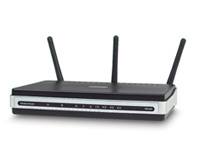Joseph Moran
As the famous proverb says, the best things in life are free. These 10 utilities may not change your life, but they’re all helpful with a particular aspect of networking and none of them will cost you a dime. (Unless otherwise noted, the utilities listed here are Windows-only.)
1. CrossLoop
When you want to get help with a computer problem from a friend— or help a friend with a problem—you can use the Windows Remote Assistance feature, but it doesn’t always work reliably through routers and firewalls.
CrossLoop, on the other hand, makes providing or receiving remote support a cinch. This remote desktop utility lets you view or control someone’s system (with their permission, of course) allows file transfers, and does it all over an encrypted link. CrossLoop installs quickly, works through firewalls with little to no configuration, and lets you connect to others using randomly generated 12-digit access codes.
2. Gladinet
There are plenty of places on the Web where you can store many gigabytes worth of files. Accessing such “cloud-based” storage usually involves logging onto a service via a browser and/or using a custom UI in order to transfer files, but Gladinet Starter Edition gives you a more convenient alternative.
Gladinet Starter Edition lets you access various online storage services as “virtual directories”, so you can get to your files right from My Computer on the Windows desktop. (The utility currently supports Amazon S3, ADrive, Google Docs and Picasa, and Windows Live SkyDrive).
3. Hamachi
Whether you want one for gaming, remote access, file sharing, or any other reason, setting up a VPN can often be a costly and cumbersome affair. Not so with LogMeIn’s Hamachi,— it offers a simple way to set up an encrypted network over the Internet for up to 16 PCs.
LogMeIn claims that Hamachi works with “zero configuration” and it’s pretty much true. In most cases, Hamachi connects effortlessly through routers that use NAT, and you use it to create or join as many as 256 secure networks simultaneously.
Note: Hamachi’s available for OS X and Linux, but those are command-line versions which lack the graphical interface. Also, Hamachi’s free version is only licensed for non-commercial use.
4. InSSIDer
The information you get from the Wi-Fi utilities built into XP and Vista is pretty bare-bones. Either will let you know the names of wireless networks broadcasting nearby, whether they’re encrypted, and give you a vague sense of their signal quality via a five-bar strength meter.
When you need more detailed information about Wi-Fi networks (like when troubleshooting problems caused by overlapping access points) MetaGeek’s inSSIDer delivers. This scanning utility will uncover a wireless network’s MAC address, the channel used, and report signal strength as a numeric RSSI (Received Signal Strength Indicator) value. inSSIDer also color-codes the networks it finds and graphs their signal strength over time and channel usage, making it easy to identify potential conflicts.
5. NetSetMan
When you frequently move between different networks and need different IP address settings—or need to connect to different resources—on each, making those changes in Windows can be a colossal pain in the… But you don’t have to have to endure the hassle if you use NetSetMan a network settings manager (hence the name) that saves profile information for up to six different networks.
In addition to letting you conveniently load a preferred IP address configuration, NetSetMan can use specific default printers, mapped drives, or login scripts depending on the network you connect to. Click here for a review. (Caveat: NetSetMan’s free version is only licensed for home use.)




